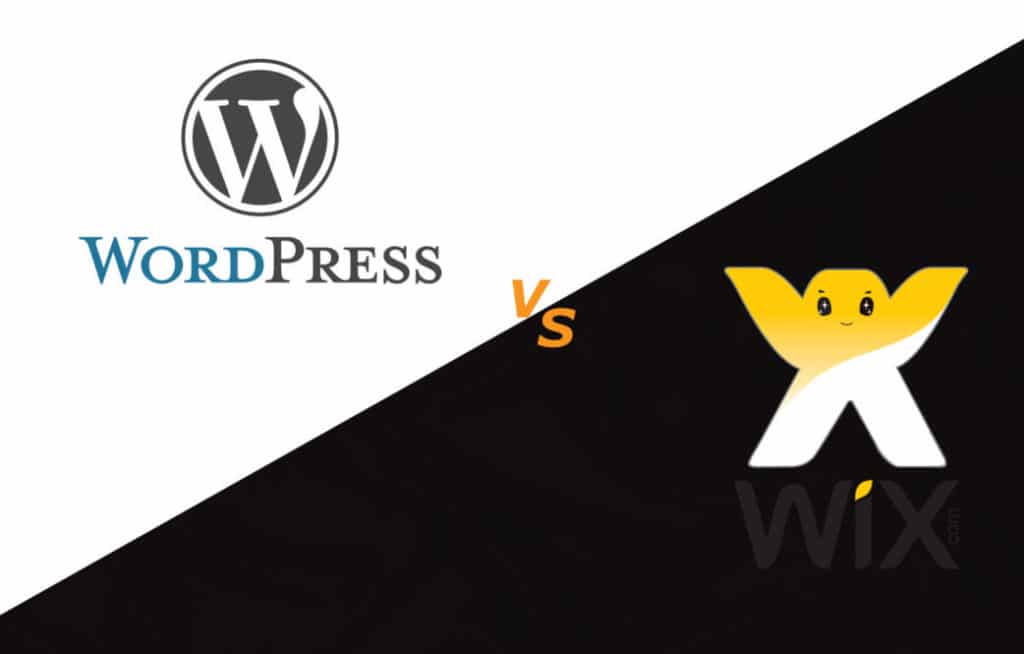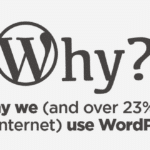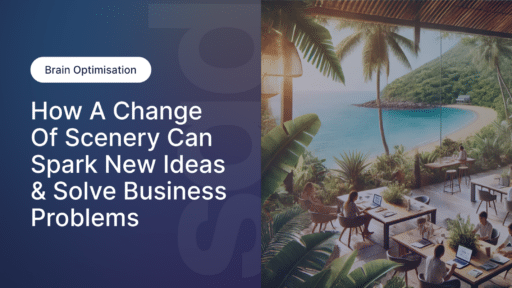When you need to create a new website for your business, it can be tough to decide which website builder to use. Most people have heard of WordPress, but there are also other platforms such as Wix, Ghost and Squarespace, and each claims to be powerful and easy to use. Especially if you’re a non-technical person, a drag-and-drop, no-coding-required builder like Wix looks very tempting compared to WordPress, which definitely has a learning curve. However, ease of use is only one factor you should consider when selecting a website builder for your business. The fact is, WordPress and Wix both have their advantages and disadvantages, depending on what kind of business you have and the goals you have in mind for the website. Today we’re going to put these platforms head-to-head to help you make an informed decision.
Ease of Use
As much as we love WordPress, we can’t deny that it takes some time to learn the controls before you’re ready to jump behind the wheel. You’ve got to get used to the Dashboard layout and figure out how to create a theme, post content, add media, handle forms, install plugins, etc. Also you need to adapt to the fact that your post looks differently in the editor than it will look when published on the site. Of course at SGD we’re always on hand to assist our clients in using their new WordPress site and even take over content management and maintenance tasks for them.
We realise that not everyone has the desire to learn WordPress or the funds to pay an agency like us to manage the site for them. If that’s the case, we suggest turning to Wix, which is more intuitive and lets you preview the site while editing, instead of having to click on a button to see a preview. Moreover, you don’t have to worry about any coding, because there is no way for you to edit the code anyway. Wix thus eliminates the developer’s role in the website building process, so that the site owner can create the site without any web development knowledge.
Flexibility
Wix’s ease of use is balanced by its lack of flexibility. In other words, Wix has a shorter learning curve because it’s less complex than WordPress. Since Wix is a proprietary platform, their in-house developers limit the templates, apps and other features that you can use. It’s true that Wix has expanded their range of choices, but this pales in comparison to the 35,000+ plugins and nearly 3,000 themes in the WordPress inventory. Put simply, you can do almost anything you want in WordPress because of its open-source nature, which has garnered the creativity and expertise of thousands of developers around the world. This gives you incredible flexibility if your business has unique requirements. You can even switch out entire themes in WordPress without losing content, whereas you’re basically stuck with your template in Wix unless you want to add in your content all over again in the new template. In addition, WordPress gives you the ability to create a custom theme from scratch (at SGD we always build sites from the ground up, based on your new or current brand).
On the other hand, the sheer multitude of WordPress themes and plugins can be overwhelming. While many developers do care about the quality of their work and do their best to fix bugs, make updates and answer user questions, there are even more who put out faulty products. Anyone can be a “developer” nowadays and it’s difficult for many business owners to separate the good from the bad. That’s why it pays to do your research on every product you download. Look at customer reviews, the number of downloads and updates, as well as the quality of customer service. That’s what we do at SGD with every site we build, to ensure that all the parts work together in harmony and don’t cause issues for the client during an important sale or campaign.
User Support
We’ve already touched on user support above, but we’ll go into a bit more detail here. Whenever we have questions or problems, we greatly appreciate the large community of WordPress users and developers who have traveled the same road and can give us advice. At the same time, some site owners don’t have time to go searching for the answer on WordPress forums. Also, contacting the developer of an individual plugin or theme can be hit-or-miss. Not all are available or even helpful. Then there are others who are always on call and provide quick, patient responses to the technical and non-technical alike.
Wix has a smaller group of in-house developers whose job it is to not only create solid products, but answer customer questions. So here you’re sacrificing flexibility (not a lot of options) for more reliable user support. We recommend this trade-off if you have a simple site that doesn’t require a wide range of functionality, but you value being able to quickly get in touch with a support team. Of course we act as a WordPress support team for our clients, so they have flexibility and reliable support.
Content
You also need to consider whether your content will be static or dynamic. If you want an interactive site where you regularly post new content, WordPress is the way to go, with hundreds of plugins and themes designed for dynamic content. If instead you just need a basic informational site that tells people about your business and services, Wix works great. Keep in mind, however, that you will have to pay more to upgrade your Wix site to a more dynamic model down the road.
As for SEO, neither WordPress nor Wix will guarantee you a high ranking. You need to post original, high-quality content for that. But currently Google favors WordPress sites, so you’re more likely to be recognised by the Google Index if you have a WordPress site. In addition, WordPress offers more SEO functionality than Wix; you can browse through numerous WP plugins devoted to SEO.
Maintenance
There’s no way around it: you’re going to have to maintain your WordPress site for it to be secure and successful. Unlike Wix, you can’t just leave it and forget it. Then again, if you’re already spending time with your WordPress site to update your dynamic content, it’s only a few extra seconds to click “Update Now” on your plugins and theme. If you don’t want to deal with the constant updates from WordPress, you can sign up for one of our monthly maintenance plans and we can take care of them for you. If you’re a small or self-run business and would rather not pay extra for maintenance, you can use Wix, where all updates are automatic and don’t require any action on your part.
Pricing
Ah, now we’re getting to one of the most important factors in your decision: how much does it cost?
Well, first off there’s the domain name and hosting. That’s essential no matter which platform you have. WordPress does not require that you host your website on their platform. You can use any hosting provider you like (generally costs about $7 per month, or $84 per year). However, you will need to purchase a custom domain name when you are using WordPress, which will cost about $10 to $12 per year. With Wix, you can purchase a domain directly from Wix, point your domain to Wix, or transfer a domain purchased elsewhere. For the Combo, Unlimited, eCommerce and VIP plans, Wix gives you a free domain name for 1 year.
Wix offers 5 premium plans and 1 free plan. Each plan has different features. For the Combo, Unlimited, eCommerce and VIP plans, Wix also gives you $125 to $250 in advertisement vouchers (Google Adwords and Facebook Ads). Here is a basic breakdown of the pricing:
Free
Connect Domain – $4.08 per month for an annual plan (or $6.90 for a monthly plan)
Combo – $9.25 per month for an annual plan (or $12.95 for a monthly plan)
Unlimited – $12.42 per month for an annual plan (or $15.95 for a monthly plan)
eCommerce – $16.17 per month for an annual plan (or $19.90 for a monthly plan)
VIP – $24.90 per month for an annual plan (or $29.90 for a monthly plan)
WordPress doesn’t have plans, but offers differently priced plugins and themes. Pre-made WordPress themes cost $30 to $80 each. Reputable developers price their themes higher. If you want to add more functionality to your WordPress site (such as slideshows, contact forms, eCommerce, etc), you can install some free or paid plugins. Premium plugin licenses can cost anywhere from $15 to $99 for a single site.
Thus WordPress is not necessarily more expensive than Wix; they simply have different pricing models. In some cases, Wix and WordPress will cost you about the same for setup and development.
If you want more customisation or don’t have the time or skills to build a site yourself, you can hire a WordPress developer or agency such as SGD to create a custom website tailored to your business and provide other services like site maintenance. Drop us a line for an estimate.
What’s Right for Your Business?
It’s ultimately up to you do decide which website builder will best meet the needs of your business, but we hope that the above pros and cons of WordPress and Wix will help you in that decision. While Wix works well for some businesses, we at SGD prefer WordPress due to its power, flexibility and developer-friendly (not to mention Google-friendly) framework because we believe it gives us the best opportunity to build eye-catching and profitable websites for our business clients. Most of our clients want to post dynamic content, enjoy a wide selection of options and need a robust eCommerce platform to power their online stores. They didn’t shy away from WordPress because of the cost; they were attracted by the control over design, functionality and content that WordPress provides. As a result they saw a positive return on their investment in the form of more sales, bookings and enquiries. You can check out the websites of our happy clients in our Portfolio.
Next week we’ll compare WordPress to another popular website builder: Squarespace.
Author

James Fulton
Since founding the company in 2012, James has been the driving force behind SGD's success. As a visionary leader, he guides the SGD team, encouraging them to continually excel in digital design. James inspires a culture of growth, challenging each team member to surpass their own limits and set new standards in the field. This commitment to excellence not only propels personal development but also ensures SGD consistently delivers exceptional results for its clients.
Unlock Weekly Insights To Improve Your Website
Want to improve your website and digital marketing? Sign up to Marketing Monday for practical, up-to-date strategies on SEO, Google Ads, and website performance—delivered weekly.
No fluff, just results-driven advice. Unsubscribe anytime.
Next Article
Why we (and over 35% of the internet) use WordPress
January 23, 2015Start a Project









